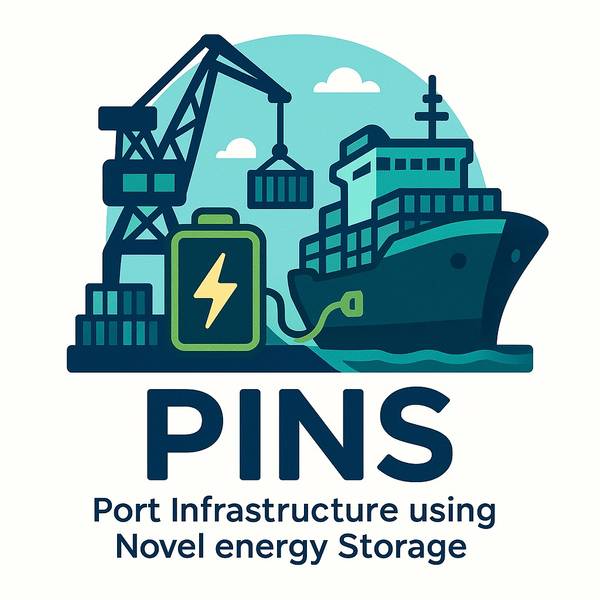
A new collaborative initiative, the Port Infrastructure using Novel energy Storage (PINS) project, has been launched to validate the feasibility of a next-generation shore power and vessel recharging infrastructure.
Funded by UK Government through the UK Shipping Office for Reducing Emissions (UK SHORE) in the Department for Transport, PINS is aiming to overcome the grid power and cost barriers that have constrained previous port electrification projects, such as the SeaChange project in Portsmouth, by integrating intelligent energy storage and management systems within port operations.
The project is coordinated by MSE International and brings together nine partners from across industry and academia, combining expertise in maritime operations, energy storage technologies, and systems engineering. Together, the consortium will deliver Front-End Engineering Design (FEED) for a scalable and commercially viable electrification solutions for a range of ports and harbors, designed to be attractive to ports and vessel operators without the need for subsidy.
The PINS project will develop and evaluate solutions across three early-adopter port and harbor sites:
For each pilot site and vessel duty-cycle scenario, PINS will evaluate four key battery technologies. Present-day feasibility will be assessed using Lithium Iron Phosphate (LFP) and re-used Lithium-ion batteries, while future (2030) viability will be examined using sodium-ion (NIB) and soluble lead flow batteries (SLFB).
The project will also explore power transfer solutions from shore to vessel, including automated wireless charging and megawatt-scale connectors, optimized to serve a wide range of vessel types and sizes.
PINS is designed to deliver real-world, commercial benefits for ports, harbors, and vessel operators, including;



